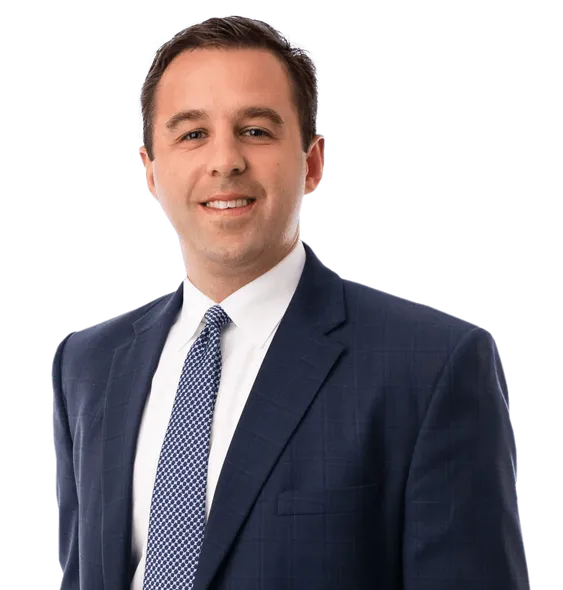About IPG Investments
Is IPG right for you?Everyday, doing the “right thing” is our number one priority
Choosing a financial advisor is a big decision. It’s important to do your homework and know who you have entrusted to partner with on your financial journey. Honesty and transparency are paramount. If this resonates with you, IPG Investments can bring dedication, hard work, heart and vision to your process.
Kevin Smith
President
Kevin Smith has over 14 years of experience in the financial services industry. As his career has evolved, he has developed a passion for helping retirees and people nearing retirement maintain their lifestyles and live out the retirement that they have hoped and planned for. Kevin is committed to helping people align their finances with their long-term goals, which involves giving them the information they need to make informed decisions.
Kevin is actively involved in the community and volunteers for the Roanoke Chapter of SCORE (Service Corps of Retired Executives), which focuses on counseling established small business owners and business start-ups. He has served as the Roanoke SCORE Chapter’s Treasurer since 2011. Kevin is also a member of the Roanoke Valley Breakfast Lions Club, where he received the “Lion of the Year” award, in recognition of outstanding loyalty and service.
When Kevin isn’t working, he enjoys spending time with his wife, Lauren and their two daughters. He likes reading about U.S. history and is an avid traveler, frequently visiting historical places. Kevin also maintains a passion for fitness and lives a healthy and active lifestyle. You will often find him hiking, playing tennis, and swimming in the ocean.
Early in his career Kevin heard a quote that resonated with him, “If you do these four things, you will succeed: Be on time, do what you say you are going to do, say ‘please’, and say ‘thank you.’” He continues to follow that advice today.


In Partnership with Case Central
Case Central is a case design firm comprised of Certified Financial Planners® and back-office support. IPG Investments leverages its industry experience, technology solutions and comprehensive case analysis to maximize your retirement strategy.
That’s a great question. Since I entered the industry in 2010, it’s been rare for me to have an initial meeting with someone who had a documented strategy for meeting his or her income needs; let alone one that is adjusted for inflation.
In many cases, I think it all boils down to being overwhelmed with information. There’s so much easily accessible information and advice at people’s fingertips. You have the internet, radio gurus, TV gurus, magazine gurus, etc., but people still don’t know who to turn to. It can get really confusing for folks because some of those media personalities have differing opinions on the same subjects. It’s enough to make your head spin, which can ultimately lead to inaction.
There are other factors as well. I think many people do a great job of maxing out their retirement contributions and getting good returns on their investments. As they get closer to retirement, however, it’s also important to consider their asset’s ability to produce additional cash flow. More often than not, people will need to tap into their assets to support themselves at some point during retirement. I think looking at an asset’s ability to generate reliable income often gets overlooked.
Before I got into this industry I had a bad experience with a financial advisor.
The advisor had a very persuasive presentation and sold me a product that didn’t align with my financial objectives. It wasn’t an inherently bad product, but it wasn’t right for my circumstances. Looking back on it, I filled out the application paperwork the same day he introduced the product to me. He only highlighted the benefits of the product without discussing any of the potential drawbacks. What was also missing from our conversation was a genuine effort to understand my situation and what I was trying to accomplish with the funds that I was investing. I ultimately lacked the knowledge needed to make an educated decision. In the end, it was too transactional and the product turned out not to be right for me.
That experience is what really shaped my overall approach to doing business.
My meeting process is largely centered on getting to know the client’s specific situation. Throughout the process we determine, together, if their finances are aligned with their core priorities. If their finances do not align, I assist them in exploring additional options to bridge the gap. I believe clients appreciate my inclination to be candid, and willingness to openly discuss both the pros and the cons of everything we talk about.
Many retirees and people nearing retirement do a great job of planning for the things they know they can expect, however I think they sometimes overlook the unexpected things that can occur over a 20–30 year retirement. Some of those things might include nursing home costs, rising healthcare costs, major health issues, or having to care for an elderly parent. They know in the back of their mind that these things can happen, and have probably witnessed them happen with someone they know, but they deny the possibility of it happening to them and therefore fail to plan for it. People are so busy working and dealing with other distractions that it causes them to procrastinate as well.
In addition to personal circumstances, some other key variables are market volatility and inflation. What if there is a market downturn at the beginning of retirement? How will that impact your income moving forward? Not planning for rising prices often sneaks up on people. A well designed retirement strategy helps prepare for those variables and builds in the flexibility to shift and change if need be.
I want to work with people who are serious about improving their situation. That means they may have to make changes. I’ve met with many people over the years who had big financial problems, but were too afraid to make the necessary changes to improve. That is a difficult scenario to handle.
In college, I took several upper level Exercise Science courses and I briefly worked as a personal trainer. Even though it’s been a long time since I left that line of work, I still maintain a passion for health and fitness.
I live close to the Appalachian Trail, which makes it easy to pursue my passion for being outdoors and hiking.
